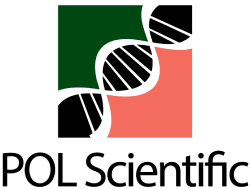Policies and Processes
1. Publishing Principles
POL Scientific is committed to advancing scientific knowledge and promoting integrity in academic publishing. We adhere to internationally recognized standards of editorial independence, peer review, transparency, and research ethics.
2. Open Access Policy
All articles published by POL Scientific are fully open access and immediately available online to readers worldwide, free of charge. We follow the principles of the Budapest Open Access Initiative (BOAI) and ensure that authors retain significant rights over their work.
3. Copyright and Licensing
- Authors retain copyright of their published works.
- Articles are distributed under the Creative Commons Attribution (CC BY) License, permitting unrestricted use, distribution, and reproduction, provided the original work is properly cited.
- Authors grant POL Scientific the right to publish and disseminate their work in both electronic and print formats.
4. Peer Review Process
- Editorial Screening: All submissions undergo an initial evaluation by the editorial office for scope, originality, and compliance with journal requirements.
- Double-Blind Peer Review: Manuscripts that pass screening are sent to at least two independent experts for evaluation. Reviewer identities are concealed to ensure impartiality.
- Editorial Decision: Based on reviewers’ feedback, editors may decide to accept, request revision, or reject the submission.
- Appeals: Authors may appeal editorial decisions with justified evidence, which will be independently reviewed.
5. Publication Ethics
POL Scientific follows the Committee on Publication Ethics (COPE) guidelines and expects authors, reviewers, and editors to uphold the highest ethical standards.
- Authorship: All listed authors must have made significant contributions to the research.
- Plagiarism: Manuscripts are screened for plagiarism using reliable detection software.
- Conflicts of Interest: Authors, reviewers, and editors must disclose any potential conflicts.
- Research Integrity: Studies involving humans, animals, or clinical samples must have prior approval from appropriate ethics committees.
6. Data Sharing and Transparency
- Authors are encouraged to make datasets, protocols, and methods openly available to promote reproducibility.
- Supplementary materials may be hosted on the journal website or linked to external repositories.
7. Article Processing Charges (APCs)
As an open access publisher, POL Scientific applies Article Processing Charges to cover editorial management, peer review, copyediting, typesetting, and digital archiving. Fee waivers or discounts may be provided for authors from low-income countries or under special circumstances.
8. Publishing Workflow
- Submission: Authors submit manuscripts via the online submission system.
- Editorial Screening: Initial check for scope and compliance.
- Peer Review: Double-blind review process.
- Revision: Authors revise manuscripts based on reviewers’ feedback.
- Acceptance: Final decision by the editor-in-chief.
- Production: Copyediting, typesetting, and proofing.
- Publication: Article published online with DOI assignment.
- Indexing & Archiving: Articles are indexed in relevant databases and archived for long-term preservation.
9. Post-Publication Policies
- Corrections: Substantive errors may be corrected via errata.
- Retractions: Articles found to involve misconduct (e.g., plagiarism, data falsification) will be retracted following COPE guidelines.
- Comments and Debate: Readers may submit formal comments or letters regarding published articles, which may be considered for publication.
10. Long-Term Preservation
POL Scientific ensures the permanent availability of published articles through digital archiving with recognized repositories (e.g., Portico, LOCKSS).
